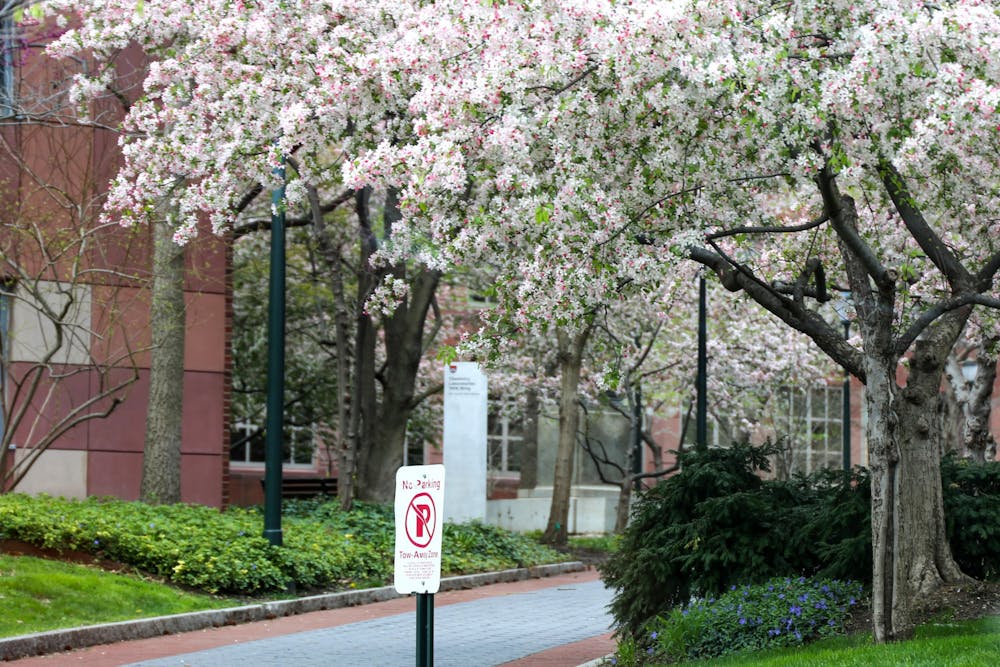
“I just can’t wait to get out of here.” It’s a phrase that’s been thrown around by most teens for years, but has suddenly made an urgent resurgence in the past month. For me personally, the only light at the end of the tunnel has been the optimistic promise that we’ll be back on campus in three months. Regardless of advancements, or lack thereof, in vaccinations, Penn should at least partially re-open for the spring semester.
Despite all hope seemingly resting on the possibility of a vaccine miracle in the next few months, it would be unreasonable to make a decision about re-opening solely based on the fact. Leading vaccines are not predicted to be approved until late spring, with distribution trailing months after. But as international situations improve and nearly all parts of the United States experience decreasing trends in new daily cases, a progression towards re-opening is still the best plan moving forward.
Without putting words in Penn’s mouth, so to speak, I could see why it may not be the University’s ideal move to welcome thousands of students back to campus with open arms. That would hold Penn personally responsible for the health and wellbeing of its own students and staff, in addition to the health of countless West Philadelphians. However, from my personal experience and in speaking to my peers, a significant portion of the student body currently studying from home is planning on seeking living arrangements in Philadelphia for the spring semester, should the university remain fully remote. Is it really a better alternative to welcome an influx of thousands of young students to Philadelphia, out of the reach of administrative guidance?
It’s important to keep in mind that, despite the daunting headlines demonizing college students for COVID-19 hotspots, there are a plethora of success stories, even without a vaccine. Universities of comparable size and location as Penn have seen promising results with standard safety protocols, such as regular testing and social distancing guidelines. The University of Chicago and New York University have had a total of 55 and 90 cases total respectively, both with continuously decreasing trends in new weekly cases. Moreover, both those schools, like Penn, are located in large urban environments that are difficult to regulate. If they can do it, there’s no reason we can’t.
As much as I miss social events and groups of friends, I can promise this isn’t me begging for a ticket to a life of nightly partying. It’s simply a request from a freshman student who has celebrated her graduation, 18th birthday, and the start of university in her own home, hoping that it’ll be worth it if it can lead us to a return to normalcy sooner.
There’s a reason why college students have been the hardest-hit by COVID-19 in terms of mental health, with anxiety and depression being reported at an alarmingly higher rate than before. Spending the majority of our waking hours holed up in our childhood bedrooms, staring at a computer screen while the majority of our peers are hundreds of miles away has caused a severe lack of motivation and deterioration of mental health in many - myself included. The transition from a high school to college workload is difficult enough without the extra hours of video lectures and the lack of any social relief that the pandemic has caused. It’s safe to say many of us have reached a breaking point far beyond anything we’ve experienced before.
Furthermore, there already exists a significant division between those students living near campus and those who aren’t, either because they didn't want to or couldn't. This social divide will only grow wider the longer Penn remains closed. We lost the sense of camaraderie that the freshman class typically has due to canceled Quaker Days and an adapted 'NSO,' and a sense of unity is only deteriorating through being physically separated. Despite the best efforts of student organizations, forming meaningful connections with other students entirely virtually is near impossible.
Many students currently studying at home are trapped in less-than-ideal study and personal environments, yet weren’t able to come to campus. Social life aside, constant distractions and lack of access to resources are extremely hazardous to the quality of education that many of us expected to receive at such a prestigious university. This is especially abhorrent considering the stagnant tuition and reduction of financial support for the semester.
Re-opening campus, even in a hybrid format, will undoubtedly be challenging, but for the sake of the emotional and educational quality of the students, it is a challenge Penn should be willing to face.
VALERIE WANG is a Wharton first-year student studying Management and Business Analytics. Her email address is valwang@wharton.upenn.edu
The Daily Pennsylvanian is an independent, student-run newspaper. Please consider making a donation to support the coverage that shapes the University. Your generosity ensures a future of strong journalism at Penn.
Donate







